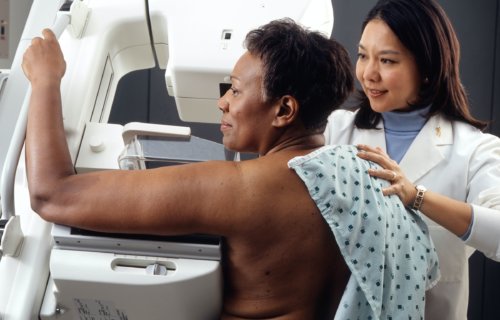CLEVELAND — Those who have a higher risk of breast cancer should think about changing up their diet. Researchers collaborating with The North American Menopause Society find that diets high in n-3 polyunsaturated fatty acids (PUFAs) may help decrease the risk of breast cancer.
Fish, vegetable oil, nuts (especially walnuts), flax seeds, flaxseed oil, and leafy vegetables are excellent sources of n-3 PUFAs. These foods are essential because the human body doesn’t naturally produce n-3 fatty acids.
The latest research included nearly 1,600 cases from a hospital-based, case-controlled study. Researchers analyzed the association between the intake of n-3 PUFAs in general with breast cancer and looked at the individual effect of n-3 PUFAs. The Chinese team also examined whether the association was modified by menopause status, hormone-receptor status, or linoleic acid intake.
More seafood may be the key
The study found that women had a lower risk of breast cancer after eating more marine n-3 PUFAs and total n-3 PUFAs. Researchers say that dietary a-linolenic acid, eicosapentaenoic acid, docosapentaenoic acid, and docosahexaenoic acid also decreased the risk of breast cancer.
Overweight or obese women who increased their n-3 PUFA intake also saw a lower breast cancer risk. Researchers add there was a significant interaction between linoleic acid and marine n-3 PUFAs.
“This study highlights the effect of lifestyle habits and, specifically, dietary intake of polyunsaturated fatty acids on breast cancer risk. Lifestyle (or diet) is known to contribute to up to one-third of the risk for breast cancer. Women can affect their risk of developing breast cancer by making dietary changes to include fruits and vegetables, fiber, and whole grains and avoiding high-fat animal and dairy products,” says Dr. Chrisandra Shufelt, president of The North American Menopause Society, in a media release.
Previous studies have provided mixed results when it comes to linking n-3 PUFAs and breast cancer risk. Study authors say many of the prior studies were performed only with postmenopausal women because the peak age for breast cancer is 60 to 70 years-old in western countries, while in Asian countries the peak age is 40 to 50.
According to statistics from the Centers for Disease Control and Prevention, 264,000 women are diagnosed with breast cancer yearly. About 42,000 women sadly die each year from the disease.
The study is published in the journal Menopause.

